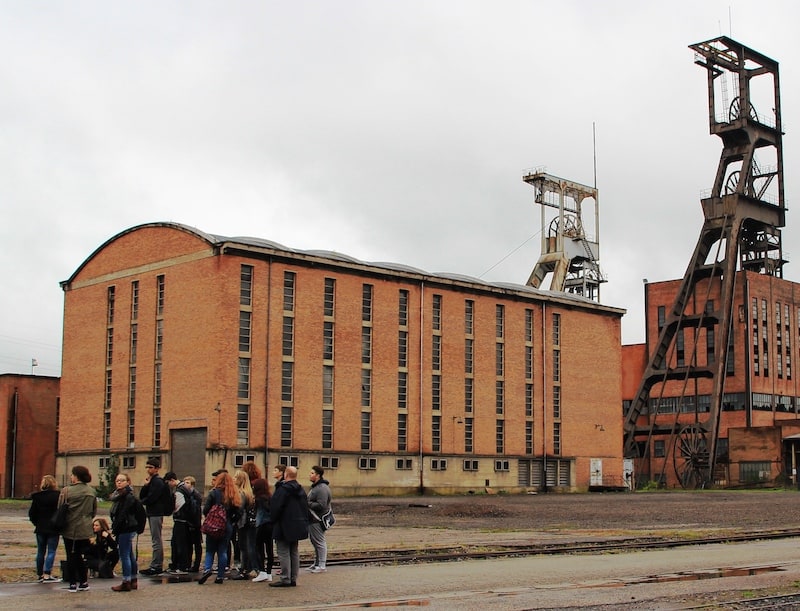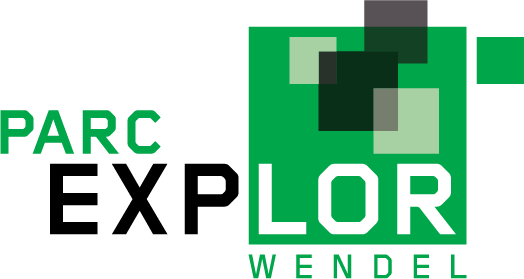Activities for secondary schools
Further learning stage applied to biology
Educational workshop – “Coal, an underground resource”
- Modalities: in sub-groups of 20 students
- Location: educational workshop
- Duration: 1h30
Knowing how to identify fossils in order to reconstruct the landscape of Lorraine in the Carboniferous era. This workshop leads students to observe Carboniferous fossils in order to discover the genesis of a sedimentary rock based on the example of coal and the associated fossiliferous shales.
Guided tour “The environmental impact of coal mining”
- Modalities: in sub-groups of 20 students
- Location: the Wendel Mine
- Duration: 1h30
Discovery of human actions on the environment. This visit to the mine enables students to find out how man has taken coal for his needs while taking into account the consequences of his actions on the landscape.
Year 9 – History
Educational workshop “Coal mining in the 19th century”
- Modalities: in sub-groups of 20 students
- Location: educational workshop
- Duration: 45 mins
The educational workshop uses an illustrated and commented slide show to help students discover the working conditions of miners during the 19th century: hours, pay, tasks, risks incurred in the short term, occupational diseases, relations with employers… and to compare them with those of the 20th century.
Educational workshop “Wendel in the industrial age”
- Modalities: in sub-groups of 20 students
- Location: the Wendel Miners Museum
- Duration: 1h30
Addressing the industrial age in Lorraine. Students will participate in a treasure hunt in the museum to discover the role played by a family of blacksmiths, the Wendels, in the development of Lorraine during the industrial age.
Guided tour “Working in a coal mine in the 20th century”
- Modalities: in sub-groups of 20 students
- Location: the Wendel Mine
- Duration: 1h30
The guided tour of the reconstructed galleries of the Wendel Mine enables us to highlight the impact of mechanization on the work of miners during the 20th century.
Year 10 – History
Educational workshop – “Coal and the building of Europe”
- Modalities: in sub-groups of 20 students
- Location: the Wendel Miners Museum
- Duration: 1h30
Discussing the history of how Europe was built. Students will discover how coal and steel, once mined in Lorraine, were at the origin of the European project promoted by Robert Schuman.
Self-guided tour of the Wendel Miners Museum
- Modalities: in sub-groups of 20 students
- Location: the Wendel Miners Museum
- Duration: 1 hour.
Discussing the history of technological progress in the 20th century, the Glorious Thirties, immigration and the building of Europe.Students fill in a questionnaire individually, enabling them to discover the Wendel Miners Museum.
Year 10 – Geography
Guided tour “The Wendel Complex: use of a productive area in Lorraine”
- Modalities: in sub-groups of 20 students
- Location: Explor Wendel Park and educational workshop (side activity offered in case of bad weather)
- Duration: 1h30
Case studies of a productive area. Students visit the mine complex to understand how this productive industrial area became a tourist and recreational site.

Testimonial meetings
- Modalities: in sub-groups of 20 students
- Duration: 1 hour.
The testimonial meetings with a former miner immerse the visitor in the daily lives and work of miners through an authentic account and anecdotes. Students can prepare questions in advance and interact with the miner during this activity.
Visit to the Petite-Rosselle mining towns
On foot or by bus, take your students on a tour to discover the history of the mining towns of Petite-Rosselle, built by mining companies between the mid-19th century and the 1960s. Detached and semi-detached workers’ houses, engineers’ and employees’ houses, dormitories, hospitals, director’s buildings… this is what you will see as you visit the various estates known as “Wendel Nord”, “Wendel Sud”, “Leyenne” and “Urselsbach”.
